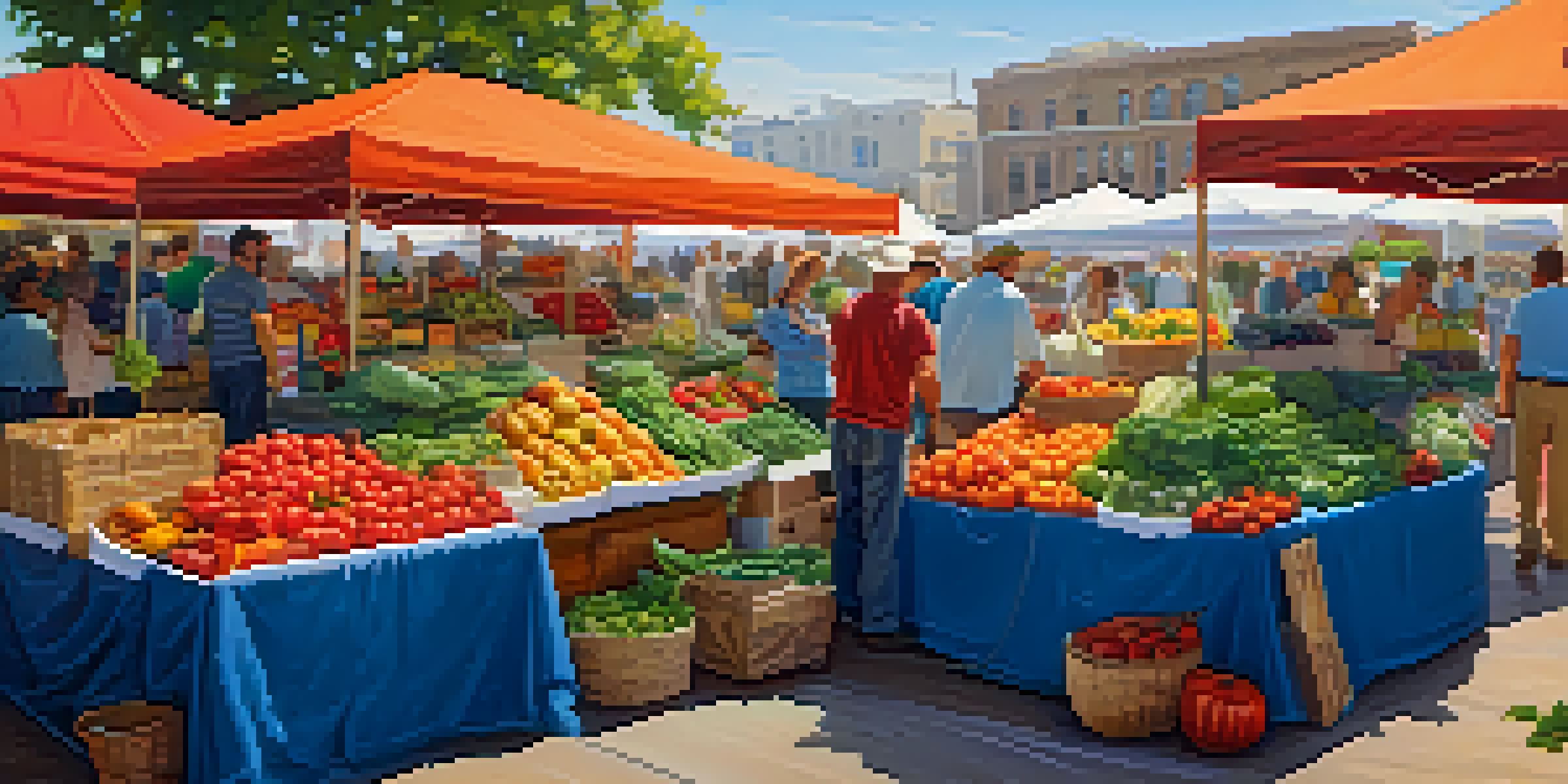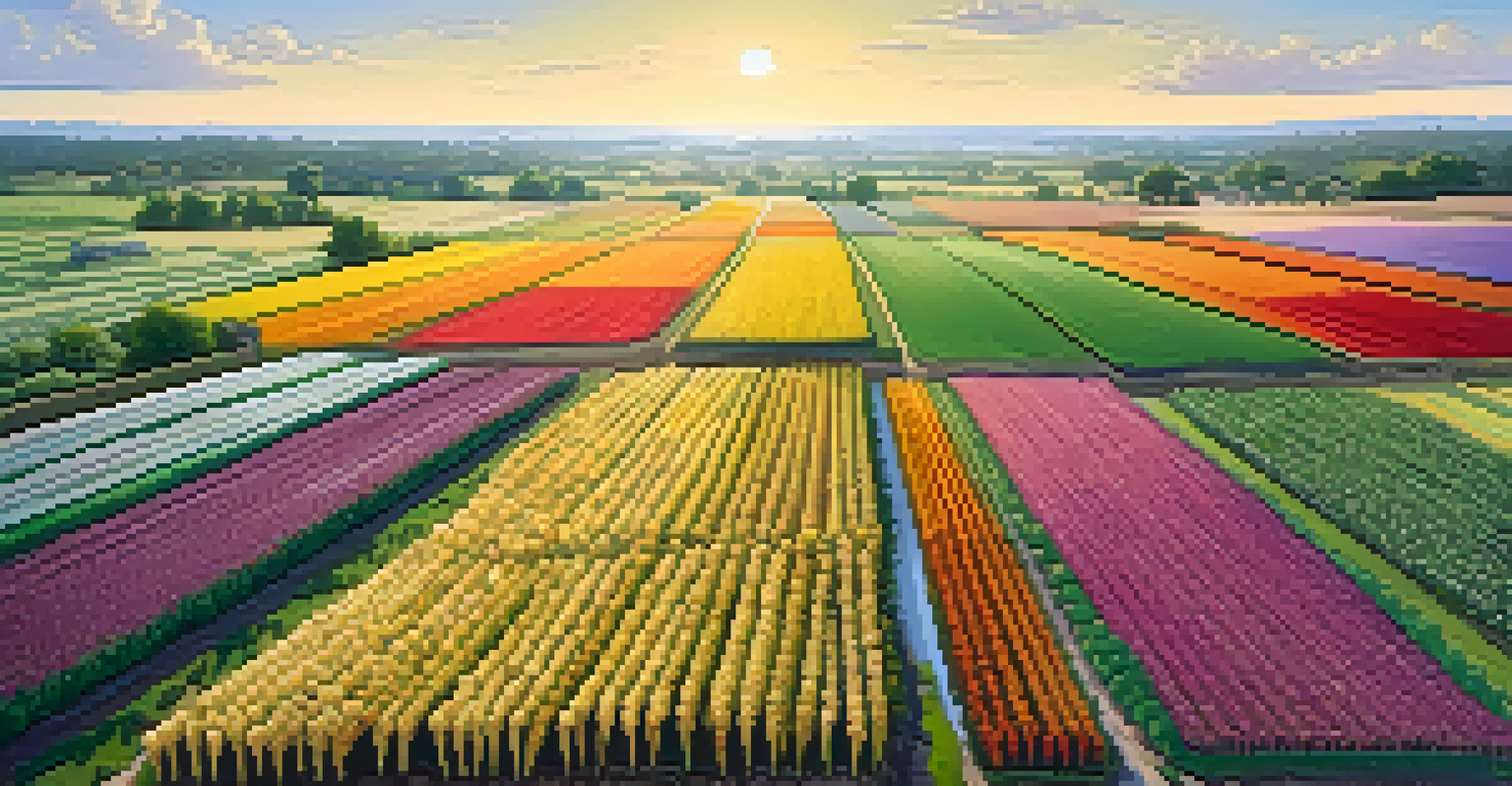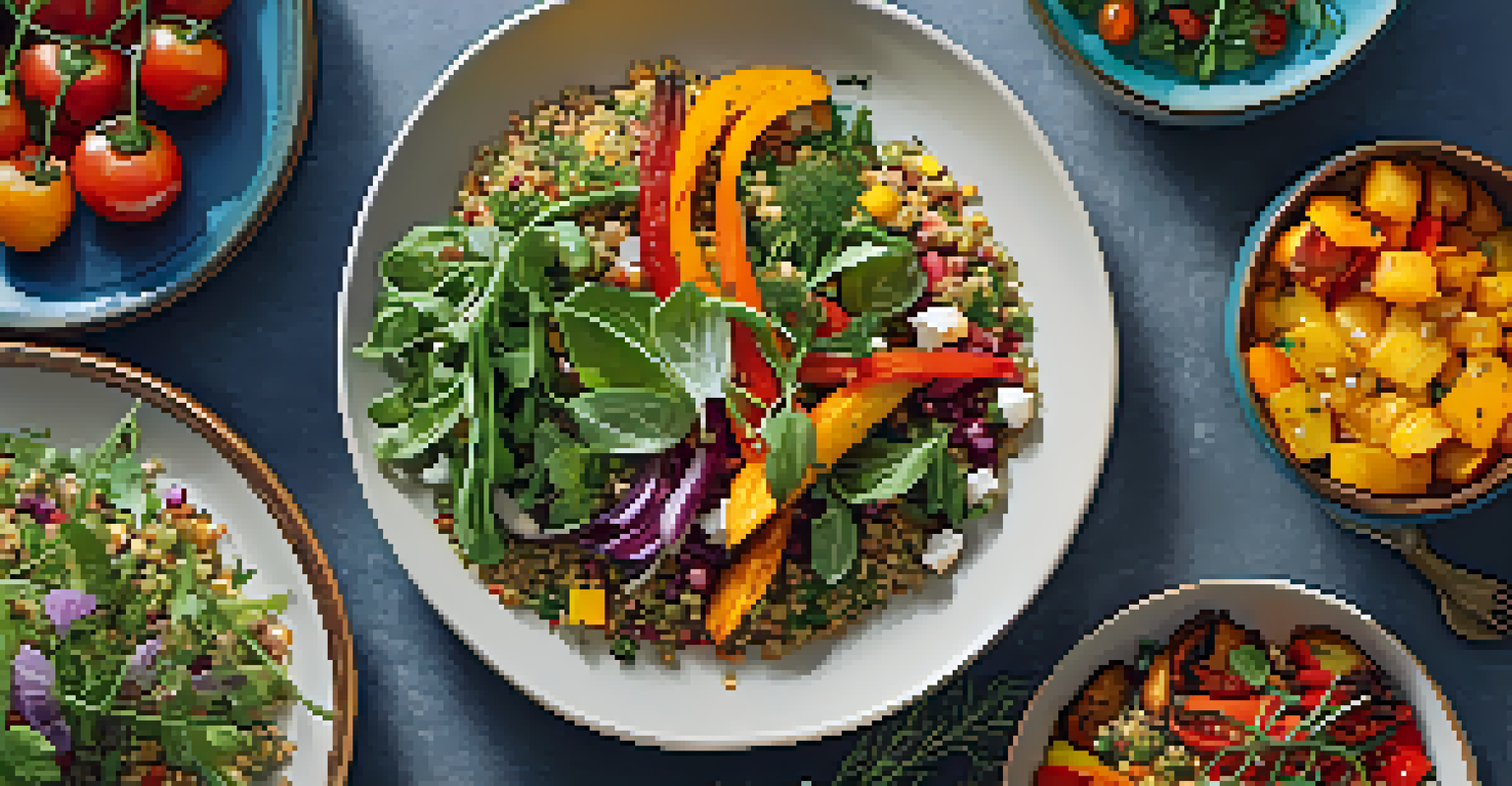The Role of Biodiversity in Sustainable Vegetarian Sourcing

Understanding Biodiversity and Its Importance
Biodiversity refers to the variety of life on Earth, encompassing different species, ecosystems, and genetic variations. It's like a vibrant tapestry, where each thread contributes to the whole picture. When we talk about food production, biodiversity plays a crucial role in ensuring resilience and stability in our ecosystems.
Biodiversity is essential for a sustainable future. It provides us with food security, clean air and water, and a stable climate.
Healthy ecosystems provide us with essential services such as pollination, nutrient cycling, and pest control, which are all vital for sustainable agriculture. Imagine a farmer relying solely on a single crop; if that crop fails, so does the farm. In contrast, a diverse range of crops can better withstand pests and diseases, safeguarding our food supply.
Moreover, biodiversity enriches our diets by offering a wide array of flavors, textures, and nutrients. By embracing a variety of plant species, we not only nourish our bodies but also contribute to the preservation of local ecosystems. This diversity on our plates is a key aspect of sustainable vegetarian sourcing.
The Connection Between Biodiversity and Sustainable Sourcing
Sustainable sourcing refers to obtaining food products in a way that minimizes environmental impact while supporting local economies. Biodiversity enhances this concept by ensuring that we are not just focused on a few high-yield crops but rather a broader spectrum of plants. This approach not only protects the environment but also promotes the livelihoods of farmers.

When we source vegetarian products sustainably, we help maintain diverse agricultural systems that are less susceptible to climate change. For instance, farmers who grow multiple varieties of beans can adapt their practices based on changing weather patterns and market demands, ensuring their long-term viability.
Biodiversity Supports Food Security
Diverse ecosystems enhance resilience in agriculture, safeguarding our food supply against pests and diseases.
Furthermore, sustainable sourcing encourages the preservation of heirloom varieties and indigenous crops, which often possess unique flavors and nutritional profiles. By choosing to support these diverse crops, we actively contribute to protecting biodiversity while enjoying a richer culinary experience.
The Role of Local Communities in Biodiversity
Local communities play a pivotal role in maintaining biodiversity through traditional agricultural practices. These time-honored methods often involve crop rotation, intercropping, and organic farming, which enhance soil health and promote a diverse array of species. It's like having a community garden where everyone contributes their own unique plants.
The diversity of life on Earth is not just a luxury; it is a necessity for our survival.
By supporting local farmers and their diverse practices, we not only help sustain the environment but also strengthen community ties. When people buy locally sourced vegetarian products, they create a direct connection with the land and the individuals who cultivate it. This relationship fosters a sense of stewardship and responsibility toward our shared environment.
Additionally, local communities often have deep knowledge about native species and their ecological roles. This wisdom can guide sustainable sourcing practices and help in the conservation of biodiversity, ensuring that future generations can continue to enjoy the benefits of a rich and diverse ecosystem.
Challenges Facing Biodiversity in Agriculture
Despite the many benefits, biodiversity in agriculture faces significant challenges, such as habitat loss, climate change, and monoculture practices. Monoculture, or the cultivation of a single crop over vast areas, can lead to soil depletion and increased vulnerability to pests and diseases. It's like putting all your eggs in one basket; if something goes wrong, the entire system can collapse.
Additionally, industrial farming practices often prioritize short-term yields over long-term sustainability, further threatening biodiversity. This approach can lead to the extinction of local varieties and a reduction in the overall health of ecosystems. Without a diverse range of crops, we risk losing the essential services that these ecosystems provide.
Local Communities Preserve Biodiversity
Traditional agricultural practices by local communities foster biodiversity while strengthening community ties.
Addressing these challenges requires a collective effort from consumers, policymakers, and farmers alike. By advocating for sustainable practices and supporting biodiversity-friendly initiatives, we can help create a more resilient agricultural system that benefits both people and the planet.
The Benefits of Biodiversity for Vegetarians
For vegetarians, embracing biodiversity means accessing a wider variety of nutrient-dense foods. This diversity can lead to better health outcomes, as different plants provide unique vitamins, minerals, and antioxidants. Think of it as a colorful plate filled with different fruits and vegetables, each contributing to your overall well-being.
Moreover, a diverse diet can help prevent food boredom, making meals more enjoyable and exciting. Exploring seasonal produce from local sources encourages culinary creativity and fosters a deeper appreciation for the food we eat. By savoring different flavors and ingredients, we can transform our vegetarian meals into delightful experiences.
Additionally, supporting biodiversity through our food choices can empower us to take an active role in environmental conservation. By choosing products that are sustainably sourced and rich in variety, we contribute to a system that values ecological health and cultivates resilience, ensuring a sustainable future for our planet.
How to Support Biodiversity in Your Diet
Supporting biodiversity in your diet starts with conscious choices about the food you consume. Opting for seasonal, local produce can significantly reduce your carbon footprint while promoting diverse agricultural practices. Farmers’ markets are an excellent place to find a variety of fruits and vegetables while connecting with local growers.
Another way to promote biodiversity is by experimenting with heirloom varieties and lesser-known crops. These unique options can often be found at specialty grocers or online seed companies. By incorporating these foods into your meals, you're not only expanding your palate but also supporting the preservation of diverse plant species.
Sustainable Choices Enrich Diets
Choosing diverse and sustainably sourced foods not only improves health but also supports environmental conservation.
Lastly, advocating for policies that promote sustainable agriculture can help create a more resilient food system. Engaging with local organizations focused on biodiversity and sustainability can amplify your impact, ensuring that the benefits of diverse sourcing extend beyond your own plate.
The Future of Biodiversity in Vegetarian Sourcing
The future of biodiversity in vegetarian sourcing hinges on our collective commitment to sustainability and ecological health. As awareness of the importance of biodiversity grows, so too does the demand for diverse food options. This shift can lead to positive changes in agricultural practices, benefiting both farmers and consumers.
Innovative approaches, such as agroecology and permaculture, are gaining traction and emphasize the importance of biodiversity in food production. These practices mimic natural ecosystems, fostering resilience and ensuring that our agricultural systems can adapt to future challenges, such as climate change.

Ultimately, fostering a culture of biodiversity in vegetarian sourcing not only enriches our diets but also contributes to a healthier planet. By making mindful choices today, we can pave the way for a sustainable tomorrow, where diverse ecosystems thrive and nourish generations to come.